Global Development Institute International Advisory Board
Dr Amani Abou-Zeid
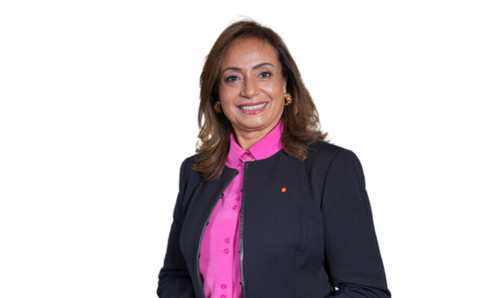
Dr Amani Abou-Zeid is the twice-elected African Union Commissioner in charge of Infrastructure, Energy and Digitalisation. She has served in leadership positions in organisations such as the African Development Bank, UNDP and USAID. Dr Abou-Zeid launched the African Single Electricity Market, the Single African Air Transport Market, Africa’s Digital Transformation Strategy, Africa’s Digital ID and data frameworks and developed the second phase of Africa’s Regional and Transcontinental projects.
She has received multi-disciplinary academic training: B.Sc. in Electrical Engineering (Cairo University), MBA in project management for African Development (Université Senghor), Masters of Public Administration (Harvard School of Government); and Ph.D. in Social and Economic Development (The University of Manchester).
Recognition for her leadership include; conferred Doctorate honoris causa in Social Sciences from The University of Manchester, decorated the Wissam Alaouite from HM King of Morocco and Ordre du Lion from HE President of Senegal, named “Personalité d'avenir" by Government of France and repeatedly selected one “The Most Influential Women in Africa". She is also member of the prestigious Global Leaders Broadband Commission for Sustainable Development, and of the Stewardship Board for the Future of Energy Initiative on Shaping the Future of Energy.
Professor Stephanie Barrientos
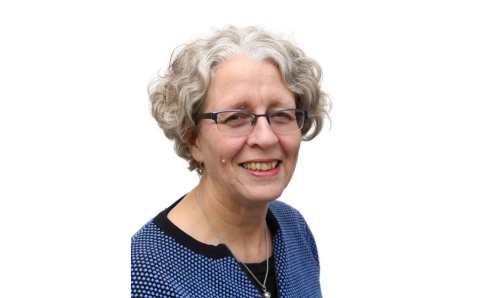
Stephanie Barrientos is Emeritus Professor in the Global Development Institute, University of Manchester. Stephanie has researched and published widely on gender, agribusiness and employment in global value chains; trade and labour standards; corporate social responsibility, fair and ethical trade; and business and human rights. She has undertaken research in Africa, Asia, Latin America and Europe. Stephanie was co-coordinator with Prof. Gary Gereffi of the Capturing the Gains research programme, examining decent work in global value chains across Africa, Asia and Latin America. She held a Leverhulme Major Research Fellowship to write a book: Gender and Work in Global Value Chains: Capturing the Gains?.
She was Research Lead on the FCDO/DFID programme Work and Opportunities for Women She also led a GCRF/ESRC research project ‘Shifting South’ on decent work in regional value chains in Africa. She has advised many companies, NGOs, government and international organisations including: Body Shop, Cadbury/Mondelez, DFID, Ethical Trading Initiative, ILO, Marks & Spencer, Nike, Oxfam, WWW, WIEGO and UNCTAD.
Professor Anthony Bebbington
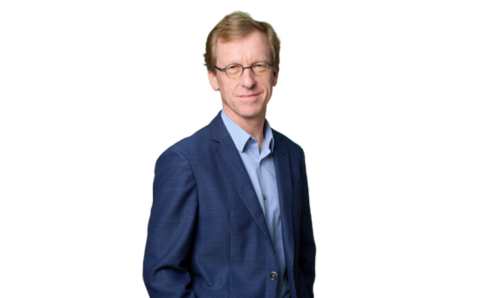
Tony Bebbington is International Director of the Natural Resources and Climate Change program at the Ford Foundation, having previously served at Clark University as Director of the Graduate School of Geography and Milton P. and Alice C. Higgins Professor of Environment and Society (2010-), from where he is currently on leave of absence.
He is a member of the U.S. National Academy of Sciences and the American Academy of Arts and Sciences, and has been a Guggenheim Foundation fellow, an Australian Research Council Laureate Fellow, an Economic and Social Research Council Professorial Fellow, among others. Bebbington held earlier positions at the Universities of Manchester, Cambridge and Colorado, as well as at the World Bank, Overseas Development Institute and the International Institute for Environment and Development.
His work has focused on extractive industries, natural resource governance, territorially-based development and civil society organizations.
Rory Brooks

Rory Brooks is co-founder of the international private equity group MML Capital Partners. Rory graduated from UMIST (now The University of Manchester) in 1975. He funded the UK’s first chair in Enterprise at The University of Manchester in 2001. In 2005 the Rory and Elizabeth Brooks Foundation became the principal benefactor of the Brooks World Poverty Institute, which was merged with the Institute for Development Policy and Management in 2015 to create the Global Development Institute. The Foundation continues to support the GDI.
Rory is the inaugural Chair of The University of Manchester’s International Advisory Board, having previously been Chair of the Global Leadership Board for eleven years. He was awarded an honorary doctorate by the University in October 2010. Rory is a previous Chairman of the Board of the Centre for Social Justice and is an inaugural Trustee of the newly formed CSJ Foundation. He is Chairman of the Quintessentially Foundation, where he has been an advisor since the Foundation’s inception in 2010. Rory was a member of the 2012 Government Task Force on Philanthropy in Higher Education, the “Pearce Report”, and was Chairman of the Giving Summit Action Group on Philanthropy in Education. In 2015, Rory was awarded the CASE Volunteer of the Year Award. In November 2015, Rory received his CBE for charitable services through the Rory and Elizabeth Brooks Foundation and the Brooks World Poverty Institute.
Winnie Byanyima
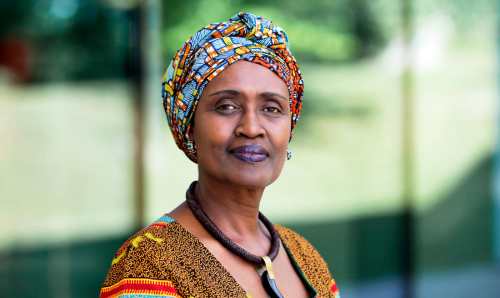
Winnie Byanyima is the Executive Director of UNAIDS and an Under-Secretary-General of the United Nations. A passionate and longstanding champion of social justice and gender equality, She leads the United Nations’ efforts to end the AIDS epidemic by 2030.
She was previously Executive Director of Oxfam International and was elected for three terms, serving 11 years in the parliament of Uganda. She led Uganda’s first parliamentary women’s caucus, championing ground-breaking gender equality provisions in the county’s 1995 post-conflict constitution.
Byanyima led the establishment of the African Union Commission’s Directorate of Gender and Development and served as Director of Gender and Development at the UNDP. She founded the Forum for Women in Democracy, an influential Ugandan nongovernmental organization and has been deeply involved in building global and African coalitions on social and economic justice. Byanyima has co-chaired the World Economic Forum. She has served on many global platforms, including the Global Commission on Climate Adaptation, the ILO's Global Commission on the Future of Work and the World Bank’s Advisory Council on Gender and Development.
She holds a Master's in mechanical engineering from Cranfield University and a BSc in aeronautical engineering from The University of Manchester.
Professor Laura Camfield
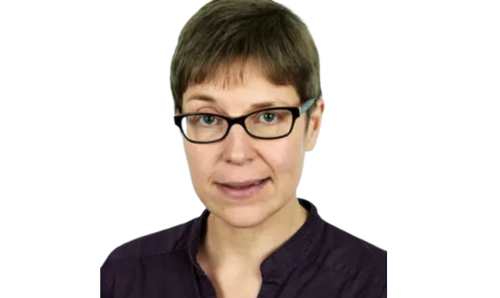
Prof Laura Camfield has 26 years of international research experience using qualitative and quantitative methods and is an active participant in academic networks with a strong record of publication and presentation. She has experience applying anthropology to complex problems in interdisciplinary environments and ensuring the quality of qualitative research within large international projects. More recently, she contributed to several evaluations and carried out training on a bespoke basis, for example, an assignment in Uganda building the evaluation capacity of ministries, Parliament and civil society. She teaches on DEV’s short course and masters’ programme; teaches on the main impact evaluation course and started courses in gender research and non-experimental impact evaluation methods. She was commissioned by the ESRC to review the methodologies used in the DFID-ESRC poverty alleviation grant scheme and advise Save the Children, UNICEF and BBC Global Media Action on research with mixed and longitudinal methods. She works most frequently in Ethiopia and Bangladesh; but has also conducted and managed research in Vietnam, Thailand, Pakistan, Andhra Pradesh (India), Peru, Kenya, Mozambique, South Africa, Uganda, and UK/Europe.
Dr Beth Chitekwe-Biti
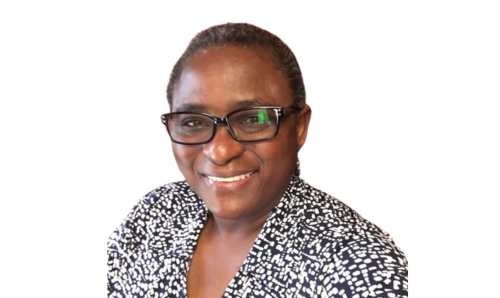
Dr Beth Chitekwe-Biti is the Director of the secretariat of Slum Dwellers International (SDI) a global network of slum dwellers, driving a collective, bottom-up change agenda for inclusive and resilient cities in the global South. SDI has been active 33 countries and currently has 18 affiliates in Africa, South Asia and Latin America. Beth founded Dialogue on Shelter a Zimbabwe NGO in 1999 which works in alliance with the social movement the Zimbabwe Homeless People’s Federation both of who are affiliates of SDI. Before moving to the SDI Secretariat in 2019, Beth was Dialogue on Shelter’s Executive Director. Beth supported the establishment of SDI affiliates in Zambia, Malawi and Botswana, has contributed as an author to articles on the work that the SDI does, and participates in local national and international events on behalf of SDI occasionally serving on committees for policies on issues impacting the urban poor. A trained urban planner, Dr Chitekwe-Biti holds a PhD in Development Policy and Management from The University of Manchester’s Institute of Development Policy and Management (IDPM).
Professor David Hulme
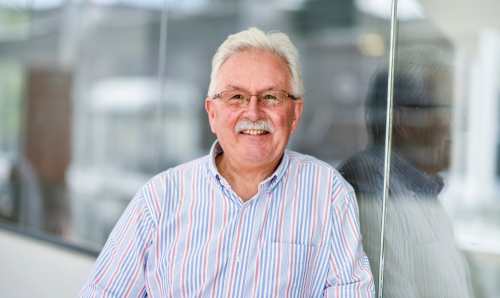
David Hulme OBE is Professor of Development Studies at The University of Manchester, where he served as Executive Director of the Global Development Institute and CEO of the Effective States and Inclusive Development Research Centre. Currently, was also the president of the Development Studies Association. He has worked on rural development, poverty and poverty reduction, microfinance, the role of non-government organisations in development, environmental management, social protection and the political economy of global poverty for more than 30 years. His main focus has been on Bangladesh but he has worked extensively across South Asia, East Africa and the Pacific. Recently, he has been a leading international expert in the discussion of the Millennium Development Goals and the Post-2015 Development Agenda.
Professor Inge Hutter
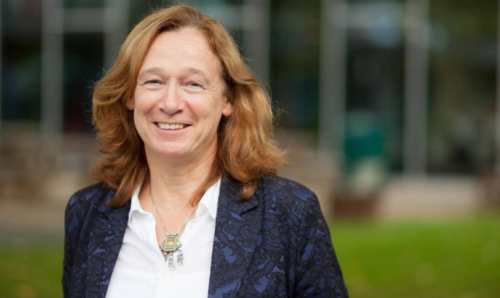
Inge Hutter is Rector of the International Institute of Social Studies, The Hague, of Erasmus University Rotterdam, and Professor of Participatory and Qualitative Research in Population and Development, since August 2015.
Before joining ISS in The Hague, she was Professor of Demography (since 2004), Vice Dean Research (2005-08) and Dean (2011-15) at the Faculty of Spatial Sciences, University of Groningen. She received an ASPASIA for Associate Professorship in 2000, a KNAW post-doc research position in 1996 and a PhD cum laude in 1994.
She has conducted research on population and health and development in India, Cameroun and Malawi. She adopts a participatory approach to research, i.e. involving societal stakeholders from the very beginning of a research project, thus ensuring that research not only leads to scientific publications but also to policies and actions and is relevant for society.
She is an expert in qualitative research; co-authoring Qualitative Research Methods with Sage which is widely used within several academic disciplines all over the world.
Dr Samuel Maimbo
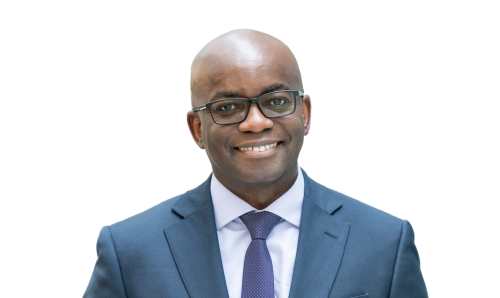
Dr Samuel Munzele Maimbo is the Chief of Staff in the Office of the President of the World Bank Group. Previously he was Director of the International Development Association, Resource Mobilization and International Bank for Reconstruction and Development, Corporate Finance department at the World Bank. With more than 20 years of experience in international development, he has worked on projects in Africa, Europe and Central Asia, and South Asia.
Previously, Samuel was Senior Advisor in the Office of the Managing Director and Chief Financial Officer. He has also worked on a diverse range of operations and countries and held various positions in the Finance Markets and Innovations Global Practice, including Financial Sector Specialist (South Asia Region, Africa Region, and Europe and Central Asia Region); Practice Manager for Strategy and Operations; and Practice Manager for Long-Term Finance & Risk Management. Before joining the World Bank, Samuel held the position of Bank Inspector at the Bank of Zambia and Auditor at PricewaterhouseCoopers. Dr Maimbo holds a Ph.D. in Public Administration (Banking) from The University of Manchester, an MBA in Finance from the University of Nottingham, a BSc. in Accounting from University, Zambia, and is a Fellow Chartered Certified Accountant.
Dr Imran Matin
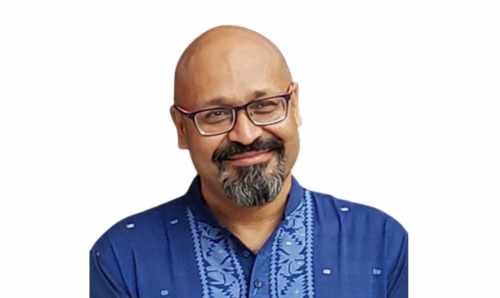
Dr Imran Matin leads the BRAC Institute of Governance and Development with the intent to transform the organisation into a globally-recognized centre for rigorous research on policy and development interventions. He provides strategic direction and oversees strategy implementation for advancing BIGD’s mission; nurtures critical stakeholder relationships; and is responsible for the overall management of the Institute.
Before joining BIGD, he worked as the Chief Research and Policy Officer of Innovations for Poverty Action, a global research organisation working across twenty countries. From 2012 to 2017, he worked as the International Programs Director of Save the Children International, overseeing the international program portfolio of the organisation operating in over 60 countries around the world. He also worked with the World Bank and the Springfield Centre for Business in Development in Durham, UK.
He holds several advisory membership positions including at the Centre of Excellence for Development Impact and Learning, 3iE, and the Gender, Growth and Labour Markets in Low-Income Countries (G2LM) program. He is a member of the editorial board of the Journal of Development Effectiveness. He has been involved in major research studies on microfinance, extreme poverty, and social protection.
Professor Emma Mawdsley
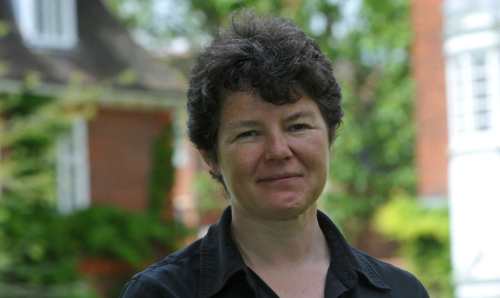
Professor Emma Mawdsley did her undergraduate degree and PhD at St John’s College, Cambridge, the latter under the supervision of Professor Stuart Corbridge.
She worked in Durham University (1996-2003) and Birkbeck College, University of London (2003-2006), before moving to her current position at the Geography Department, University of Cambridge, where she is now a Reader in Human Geography. She is also the Vice-Principal of Newnham College, and Director of the Margaret Anstee Centre for Global Studies.
Emma’s research is on the politics of global development. This includes a substantial body of work on ‘South-South’ development cooperation, with a particular but not exclusive focus on India. More recently she has extended her scope to explore how DAC donors are re-purposing their development narratives, tools and agendas to a changing global landscape. This includes work on the domestic politics of aid in the UK, donor-middle income country development transitions, and re-theorising the changing governance of development.
Professor Tania Murray Li
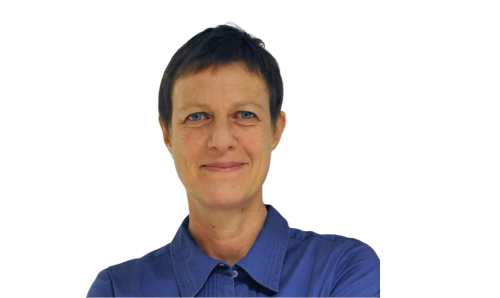
Tania Murray Li is Professor of Anthropology at the University of Toronto. Her publications include Land's End: Capitalist Relations on an Indigenous Frontier, Powers of Exclusion: Land Dilemmas in Southeast Asia (with Derek Hall and Philip Hirsch), The Will to Improve: Governmentality, Development, and the Practice of Politics and many articles on land, labour, class, capitalism, development, resources and indigeneity with a particular focus on Indonesia. Her latest book Plantation Life: Corporate Occupation of Indonesia’s Oil Palm Zone is co-authored with Pujo Semedi.
Her research engages in some way with practices of politics as she attempts to understand (1) What is the formation of power that makes people uneasy and become critical of their situation? (2) Through what practices is their critique shared or enunciated? (3) What is the social group that connects to this critique? (4) In what ways do people assemble around a critical position and act to change the configuration of power they have identified as problematic? She also examines (5) What potential or embryonic critiques are not articulated, or (6) do not form the basis for connection and mobilisation, or (7) do not make new worlds? And finally: (8) What are the formations, practices, and affective states that sustain and stabilise the status quo?
Professor Jose Puppim de Oliviera
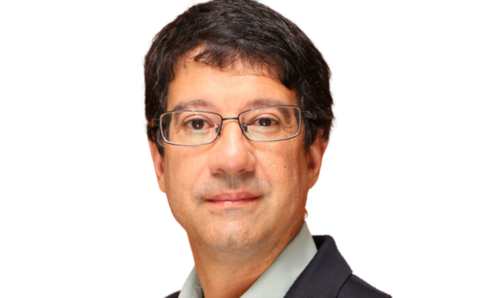
Jose A. Puppim de Oliveira is a faculty member at FGV (FundaçãoGetulio Vargas), Brazil, with extensive international experience in teaching, research and academic management.
Professor Imraan Valodia
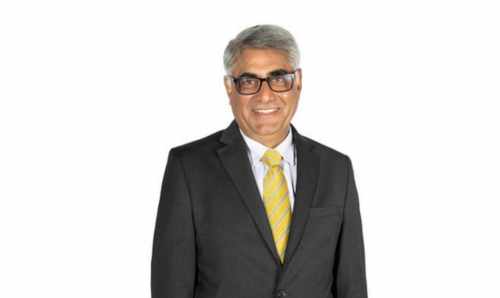
Professor Imraan Valodia, is Professor of Economics; Pro Vice-Chancellor: Climate, Sustainability and Inequality; and Director of the Southern Centre for Inequality Studies, University of the Witwatersrand, Johannesburg (Wits). Professor Valodia played a leading role in establishing and leading Wits University’s Southern Centre for Inequality Studies (SCIS). The SCIS is a multi-disciplinary, cross-country initiative to promote research and policy change to advance greater equality.
Professor Valodia is a part-time member of the Competition Tribunal in South Africa. He is also a Commissioner of National Minimum Wage Commission and Chair of the Academy of Science of South Africa Standing Committee on Science for the Reduction of Poverty and Inequality.
He serves as a member of President Ramaphosa’s Presidential Economic Advisory Council in South Africa. Professor Valodia has worked with a number of international institutions including the International Labour Organisation, the World Bank, the United Nations Development Programme and the United Nations Development Fund for Women and UN Women. He is a member of the Board of the United Nations Research Institute for Social Development, and a member of the Board of the research network, Women in Informal Employment: Globalizing and Organizing.
